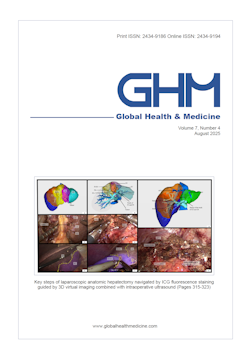Global Health & Medicine 2021;3(5):335-342.
Seamless support from screening to anti-HCV treatment and HCC/ decompensated cirrhosis: Subsidy programs for HCV elimination
Setoyama H, Tanaka Y, Kanto T
Viral hepatitis poses a major public health problem in Japan. Chronic viral hepatitis is a progressive liver disease that eventually develops into liver cirrhosis and liver cancer. Since nucleic acid analog therapy for hepatitis B and interferon-free therapy for hepatitis C have made it possible to control the disease status or eliminate the viruses, it is very important that more people receive hepatitis virus tests to confirm the presence of infection at an early stage, and that patients with hepatitis detected by the tests receive appropriate medical care. Currently, the government of Japan is implementing comprehensive measures for hepatitis control based on five key strategies. Moreover, the goal listed in the Basic Guidelines on Hepatitis Measures is to reduce the frequency of progression of hepatitis to cirrhosis or liver cancer through a scheme consisting of testing people for hepatitis, getting those who test positive to visit a medical institution and receive treatment, and providing appropriate and high-quality hepatitis care through specialized medical institutions and regional core centers for the management of liver disease. To achieve the goal, various subsidy programs including an expense subsidy system for hepatitis treatment have been implemented in Japan. It is important for healthcare professionals to have sufficient knowledge of public support for efficient hepatitis C virus (HCV)-related liver disease detection and care.
DOI: 10.35772/ghm.2021.01079







